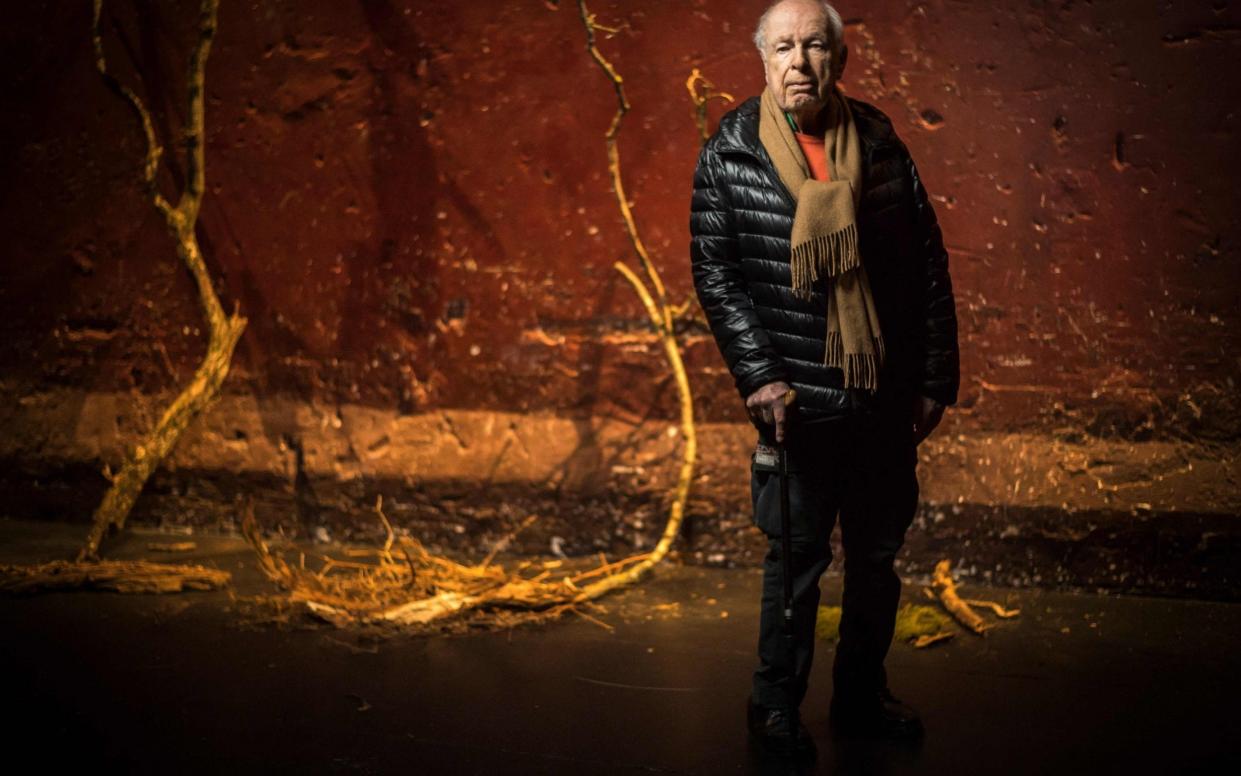Peter Brook's mission was to rid the world of comfortable, middle-class theatre

I like to think that if there’s a heaven, Peter Brook has already sailed through the pearly gates, had a chat with the Almighty about setting in place the necessary funding arrangements and got straight down to business, creating a new work.
“I’m sorry, it’s mainly just clouds,” the Lord Above is apologising, “there’s next to nothing here”. “But haven’t you read my book The Empty Space?” Brook admonishes with a kindly twinkle. “It’s all there in the opening two lines: ‘I can take any empty space and call it a bare stage. A man walks across this empty space whilst someone else is watching him, and this is all that is needed for an act of theatre to be engaged.’ Voila!”
Forgive the levity of spirit when mournful gravity seems de rigueur. Yet we do Brook, whose death, at the age of 97, was announced yesterday, a disservice to accord his hallowed memory too much pomp and circumstance. That he was one of the most gifted, industrious, influential and important directors of the 20th century is beyond dispute. The length of his career – spanning eight decades, from precocious beginnings to still-toiling infirmity – is remarkable; what’s that line from Lear? “We that are young shall never see so much, nor live so long.”
He was a credit to Britain, his country of birth, and a credit equally to his adoptive homeland (from the 1970s) of France, where his internationalism was given free rein.
Yet he wasn’t remote, forbidding. What drove him was a pursuit of something pure – and true - in theatrical art, in the connection between actor and audience. "You can’t imagine what it was like," he told me in 2018, casting his mind back to the 1940s: “The West End consisted of a comfortable middle-class theatre. All that mattered was niceness and gentility. It was the theatre of reassurance.”
Working with some of the finest Shakespearean actors of his time, especially notably Laurence Olivier in Titus Andronicus and Paul Scofield in King Lear, he blasted that reassurance aside, summoning a new bleakness and savagery and locating a modernity in the Bard. He initially fit the description of enfant terrible, causing shockwaves in 1964 when he endeavoured to push a cast, including the actress Glenda Jackson, to mental breaking-point during rehearsals for Peter Weiss’s Marat/Sade at the RSC.

His 1970 production of A Midsummer Night’s Dream is revered to this day. Featuring trapezes and stilts and employing the precepts of The Empty Space, it removed any hint of the bucolic and placed the action in a white-box set. It is a legacy that can still be seen in the stripped-back aesthetic often found at the National and the make-do-and-mend magic of Harry Potter and the Cursed Child.
But after his Dream triumph, Brook refused to settle into an accepted groove. In the immediate term, he exchanged Shaftesbury Avenue for African villages, as he roamed far and wide; thereafter he consolidated his base at the Bouffes du Nord, the 19th-century playhouse near the Gare Du Nord he made his home from 1974.
The move abroad was conducted not out of spite – he always maintained that he didn’t go into exile – but out of joie de vivre, an enviable wunder-lust and a noble-minded bid to eschew insularity. “The complete human truth is global, and the theatre is the place in which the jigsaw can be pieced together” – he once wrote.

A Midsummer Night’s Dream aside, there are three other major Brook productions I wish I’d seen – his celebrated, magnum opus staging of the ancient Indian epic, The Mahabharata, which premiered in a dawn-to-dusk performance in a quarry near Avignon (the television adaptation of which barely begins to explain the acclaim); Orghast, his collaboration with Ted Hughes to forge a version of the Prometheus myth using “pure sound” to communicate – staged in Iran in 1971; and Conference of the Birds, his version of the 12th-century Persian poem, which roved the Sahara with a band of actors that included a young Helen Mirren.
I’d also love to have seen his notorious 1968 Oedipus with John Gielgud and a giant inflatable phallus about which, on seeing it, the actress Coral Browne loudly quipped to her female companion: "Nobody we know, dear."
Three that I did see, to review, all attested, in their relatively slim-line way, to his ongoing ability to think outside the parochial British box: his quick-step, cut-back Bouffes du Nord Hamlet (2000), starring Adrian Lester, Tierno Bokar (2005), his timely depiction of the life of a Sufi mystic in divided 1930s French-occupied Mali; and, also in 2005, Ta Main dans la mienne, which starred his wife Natasha Parry as Olga Knipper in adoring epistolary exchange with Anton Chekhov.
Possessed of the most piercing blue eyes, Brook always retained a sense of humour and a welcome air of modesty. In 2005, I asked him about turning 80. Sage, he shrugged: “It takes one closer to death. One has to stop for a moment. It's like that last scene in Doctor Faustus: ‘Ah Faustus, now hast thou but one bare hour to live'. It's an essential human reminder and I'm grateful for it. Time must run out.”


